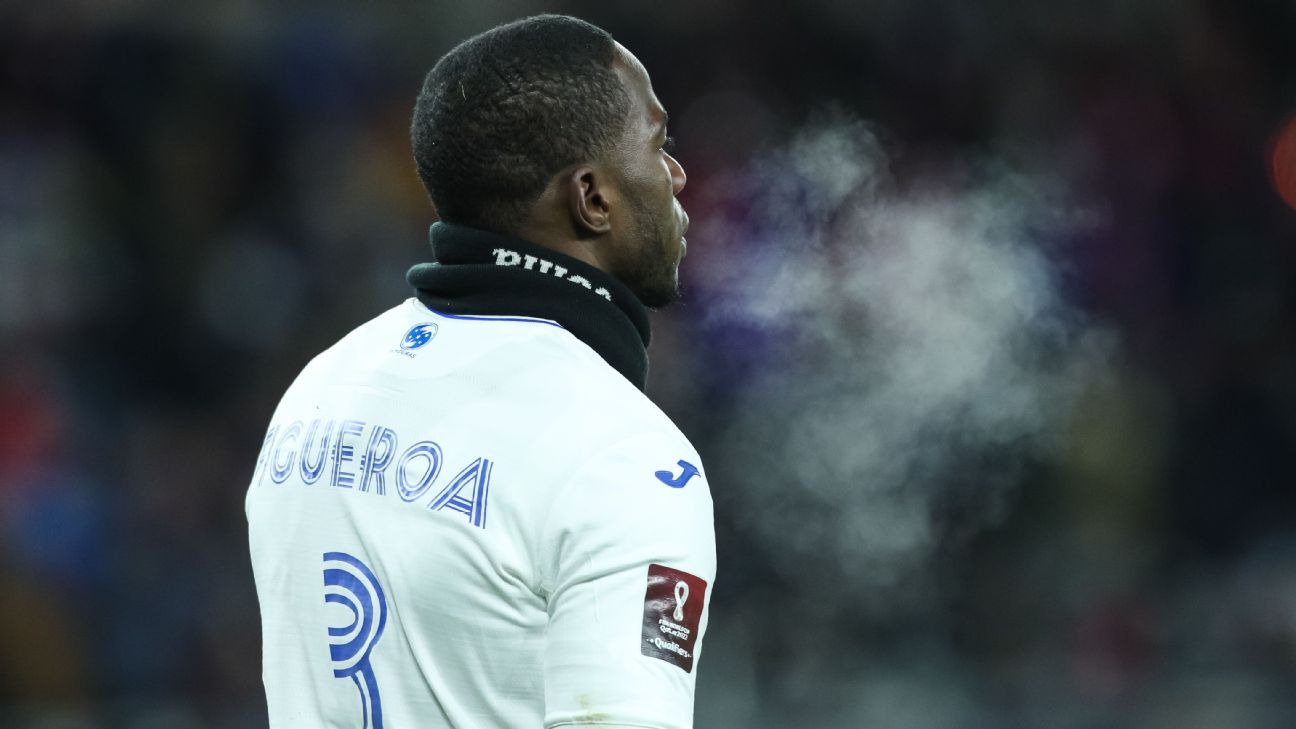ST. PAUL, Minn. — Honduras confirmed that two of its players in Wednesday night’s 3-0 World Cup qualifying loss to the U.S. men’s national team needed to be substituted at halftime because of the “extreme climate conditions” at Allianz Field. Honduras made three changes at the interval, with goalkeeper Luis Lopez, midfielder Diego Rodriguez and forward Romell Quioto all exiting the match.
The temperature at kickoff was 1 degree Fahrenheit, with a wind chill of -14. The National Weather Service issued a wind chill advisory for the region Wednesday afternoon, and warned of the potential for frostbite in as little as 10 minutes in the conditions.
– ESPN+ viewers’ guide: LaLiga, Bundesliga, MLS, FA Cup, more
– Stream ESPN FC Daily on ESPN+ (U.S. only)
– Don’t have ESPN? Get instant access
“I’m not going to analyze my team, the game or my players performance. It’s not possible and I’m not capable of doing it under these circumstances,” Honduras manager Hernan Dario Gomez said after the match. “Inside the locker room my players are receiving IV fluids and many of them are in pain.”
The topic of weather has been a constant during this international break for the U.S., following games in Columbus (where the temperature at kickoff was 29 degrees at kickoff) and Hamilton, Ontario (21) last week. U.S. Soccer has maintained that it scheduled its home games in Ohio and Minnesota to allow for more-forgiving travel on either side of Sunday’s match in Canada, and to maintain a consistent climate for its players for all three matches.
Before Wednesday, 29 degrees was the coldest temperature recorded for a USMNT contest, a mark reached three times: in Columbus against Mexico in February 2001, in Commerce City, Colorado against Costa Rica in March 13, and last Thursday in Columbus against El Salvador.
U.S. manager Gregg Berhalter was asked whether the substitutions Honduras was forced into making because of the extreme cold caused him to reconsider U.S. Soccer’s decision to play Wednesday’s match in Minnesota, where the historic average high temperature on Feb. 2 is 24.6 degrees.
“That’s a really difficult question to answer,” he said. “What I would say is that we provided Honduras and their staff and the referees with warm-weather gear, we provided them with headgear … trying to make it a safe environment for them to play.
“You know, when we go down to those countries, and it’s 90 degrees … and it’s unbearable humidity, and guys are getting dehydrated and cramping up and getting heat exhaustion, that’s that’s the nature of our competition.”
